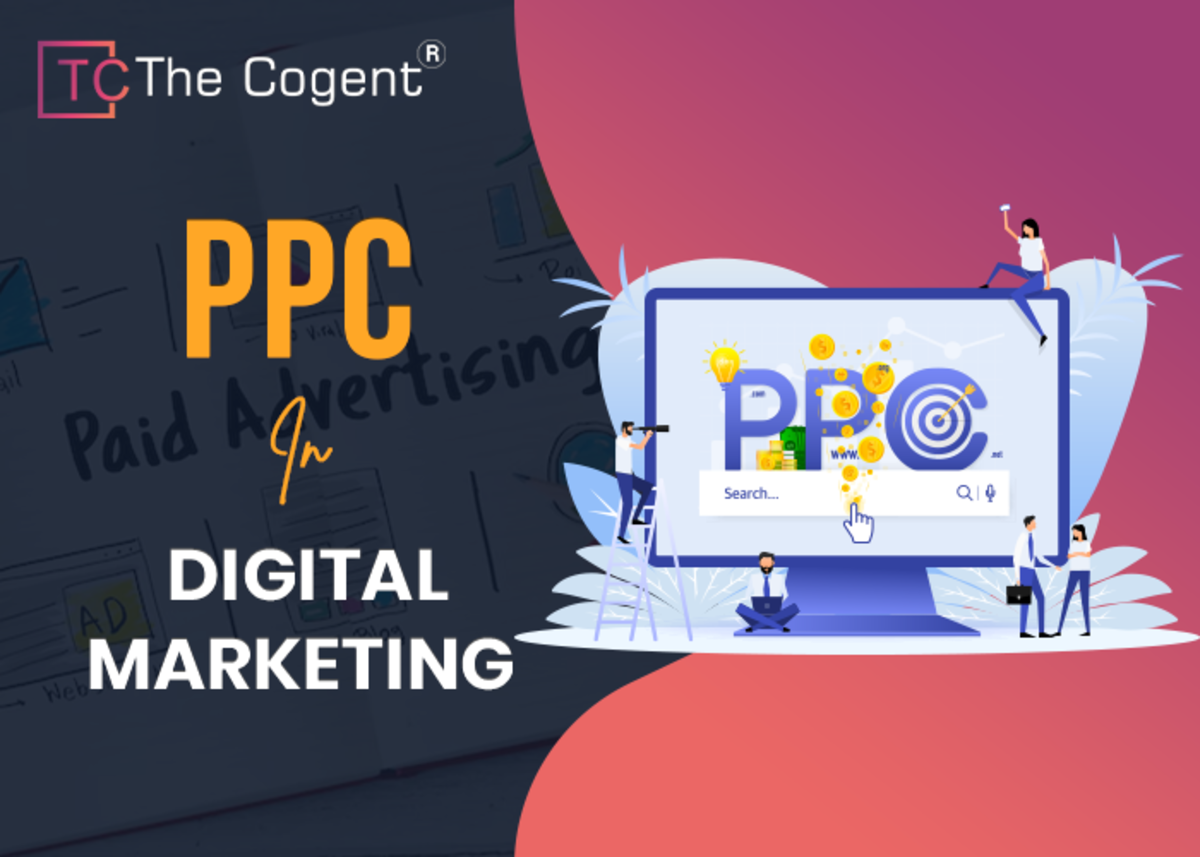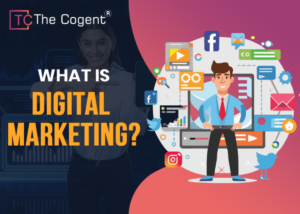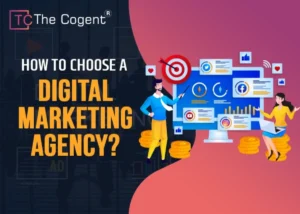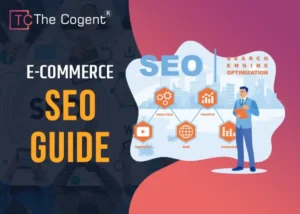With the rapid evolution of digital marketing, Pay-Per-Click (PPC) has become a powerful tool for driving targeted traffic to websites and boosting business growth. PPC in digital marketing allows advertisers to bid on specific keywords relevant to their products or services and display their ads on search engines and other online platforms. The advertiser pays a certain amount every time a user clicks on the ad, hence the name Pay-Per-Click. With this guide, you will learn how PPC marketing works, its advantages, and its role within Google Ads, as well as tips for conducting successful keyword research.
What is PPC?
Pay-Per-Click or PPC in Digital marketing is the model of online advertising that involves advertisers paying a fee each time a user clicks on one of their ads. In other words, it is a way to buy visits to a website as opposed to earning them organically. PPC advertisements can be displayed on search engines such as Google and Bing, as well as on social networking sites and other websites.
How does PPC marketing work?
PPC campaigns start with keyword research, where advertisers identify relevant and high-traffic keywords related to their products or services, such as “Digital Marketing Agency in Jaipur.” Advertisers bid on these keywords in an auction-style system. When a user enters a search query that matches the targeted keywords, the search engine runs an auction to determine which ads will be shown. The winning ads, including those from a “Digital Marketing Agency in Jaipur” are displayed on the search results page. If a user clicks on the ad, the advertiser is charged the bid amount.
Advantages of PPC in Digital Marketing
- Instant Visibility: PPC in digital marketing offers immediate visibility on search engines, allowing businesses to reach their target audience instantly.
- Targeted Advertising: Advertisers are able to choose specific keywords and demographics, which ensures that their ads are seen by a relevant audience.
- Cost Control: PPC campaigns allow advertisers to set daily budgets to avoid overspending and to adjust bids according to performance.
- Measurable Results: PPC provides detailed analytics and insights, allowing advertisers to track performance and make data-driven decisions.
- Enhance SEO Efforts: PPC can complement organic SEO efforts, providing additional exposure for targeted keywords.
- Brand Awareness: Even if users don’t click on the ad, exposure can increase brand awareness.
- Flexibility: Advertisers have the ability to modify campaigns quickly in order to respond to changing market conditions.
What is Google Ads?
Formerly known as Google AdWords, Google Ads is Google’s advertising platform. It is where advertisers bid on keywords to display their ads on Google’s search engine results page, YouTube, and partner websites.
PPC work in Google Ads
Google Ads operates as PPC models. Advertisers select keywords related to their business, set bids for those keywords, and create ad copies. When users search for those keywords, Google runs an auction, and the winning ads are displayed on the search results page. The ad rank is determined by the bid amount and the quality score. This considers factors like relevance and click-through rate. It is an easy process that a PPC Company in Jaipur can use to boost their google ads for increasing quality leads.
Keyword Research in PPC
Keyword research is the foundation of a successful PPC campaign. Tools like Google’s Keyword Planner, SEMrush, or Moz can help identify relevant keywords with high search volume and moderate competition. Long-tail keywords can be particularly valuable for targeting specific user intent and reducing competition.
Who Should Use PPC?
PPC in digital marketing is suitable for a wide range of businesses, including:
- Startup businesses seeking immediate online visibility.
- E-commerce companies promote specific products or seasonal offers.
- Local businesses trying to reach a targeted audience in their area.
- Established businesses looking to complement SEO efforts and increase online presence.
Tools for PPC
PPC tools play a vital role in managing bids, tracking conversions, and enhancing overall account performance. These powerful tools offer valuable insights, aid in campaign creation, promote collaboration among team members, and provide automated recommendations for optimal results.
- Insight Tools: These tools offer valuable insights into competitors’ strategies, including their keywords, ads, and strengths and weaknesses. Notable examples include the Keyword Planner Tool, Bling Ads Intelligence, SEMRush, and SpyFu.
- Build Tools: With the help of build tools, marketers can efficiently create new PPC campaigns and expand existing ones. Widely used build tools are Excel, Adwords Editor, Bling Ads Editor, Unbounce, and WordPress.
- Collaborative Tools: To enhance team collaboration and accessibility to essential assets, collaborative tools like Dropbox, OneDrive, G Suite, and Box prove invaluable.
- Project Management Tools: Efficient project management is vital in PPC, and tools like Trello, Podio, Jira, and TeamworkPM streamline project-related tasks.
- Automated Recommendations and Testing Tools: These tools automate essential functions such as Ad Testing, Positive Keyword Suggestions, and Quality Score Insights, leading to data-driven improvements in PPC campaigns.
By using these PPC (Pay-Per-Click) tools effectively, marketers can optimize their strategies, improve organization, and conduct in-depth research to achieve outstanding results in the highly competitive PPC in digital marketing.
Managing your PPC campaigns
Effectively managing your Pay-Per-Click or PPC in digital marketing is crucial for ensuring their continued success. Regularly monitoring and optimizing your PPC account activity is a strong indicator of overall performance. Here are some essential adjustments to make for PPC campaign optimization:
- Constantly Expand Relevant PPC Keywords: Broaden the reach of your PPC campaigns by continuously adding keywords that are highly relevant to your business and target audience.
- Implement Negative Keywords: Enhance campaign relevancy and minimize wasteful spending by including non-converting terms as negative keywords.
- Review Expensive, Under-performing Keywords: Carefully assess the performance of costly keywords, and if they are not delivering the desired results, consider pausing them to optimize your budget allocation.
- Enhance Landing Pages: Elevate your conversion rates by refining the content and Call-to-Action (CTA) of your landing pages to align with specific search queries. Avoid directing all traffic to a single page.
- Opt for Smaller, More Relevant Ad Groups: Boost Click-Through Rate (CTR) and Quality Score by breaking down ad groups into smaller, focused ones. This approach enables you to craft targeted ad text and landing pages, leading to better overall campaign performance.
By implementing these PPC (Pay-Per-Click) practices diligently, you can ensure that your PPC in digital marketing remain effective, cost-efficient, and attuned to the needs of your audience. Regular analysis and optimization of your PPC activities will pave the way for sustained success in the competitive landscape of PPC advertising.
Conclusion
Pay-per-click or PPC in digital marketing is a highly effective strategy for businesses to drive targeted traffic, increase brand visibility, and achieve specific marketing goals. By understanding the fundamentals of PPC, conducting thorough keyword research, and utilizing platforms like Google Ads, businesses can harness the power of PPC to achieve tangible results in the competitive digital landscape. Remember to continually monitor and optimize your PPC campaigns to ensure the maximum return on investment. This will enable you to stay ahead in digital marketing.



